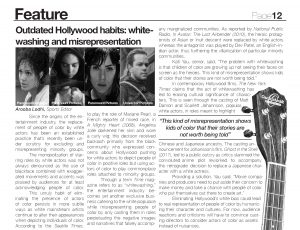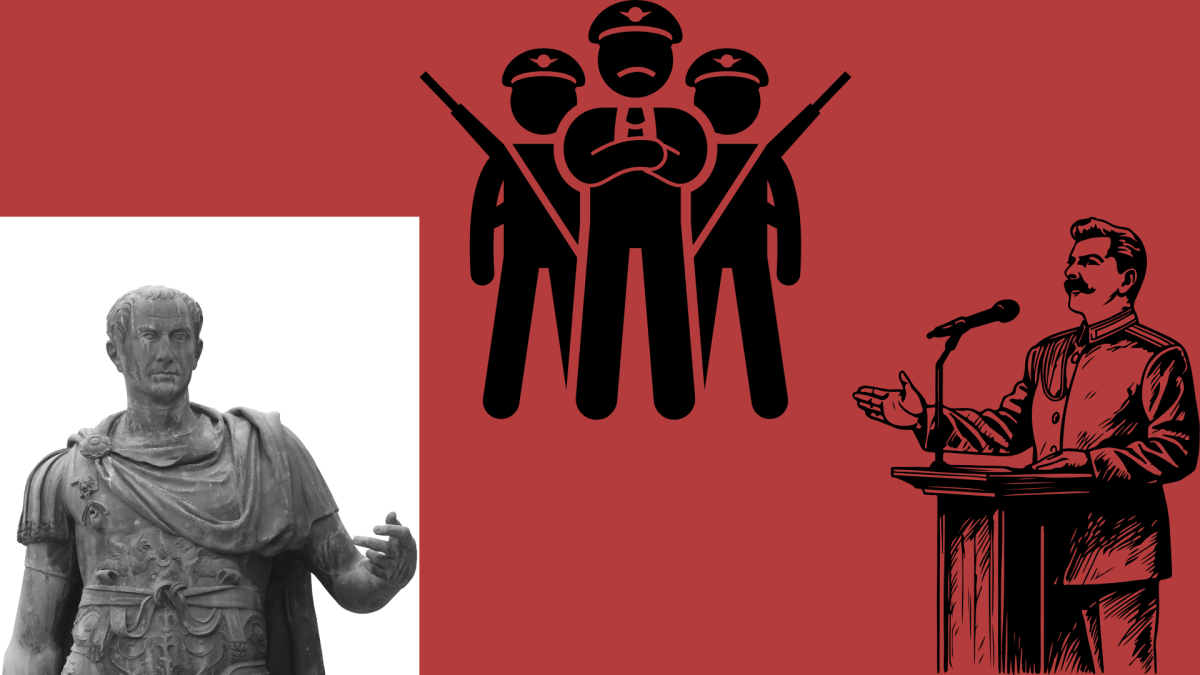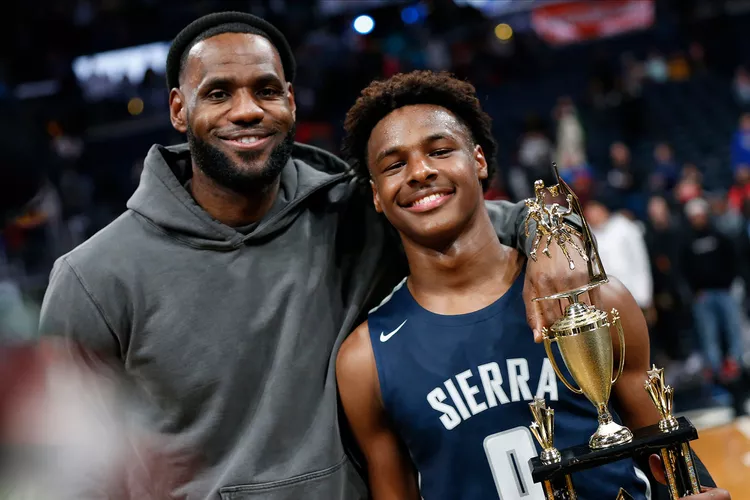Prior to becoming a reporter for North Star News, I had a passion for engaging in discussions with my peers about controversial topics and then composing analyses of these conversations. I had the drive to ask the tough questions but was lacking the variety of tools and methods needed to unpack the complex answers. With this realization and the exposure I had to fake news and unreliable media stories, I was further motivated to pursue a passion for reporting my perceived truth. Coming into the class with a passion for writing, a basic understanding of journalistic standards, and an eagerness to learn, I have improved upon this art as well as my character.
After my time serving as a reporter thus far, I have learned about the mechanisms that separate objective journalism from reports with clear biases. In cases where a piece is not an opinion, I’ve learned to adhere to as unbiased of an approach as I can to report the facts and allow the readers to react instead of writing through a narrow perspective not shared by the entirety of the audience. Essentially, along with becoming well-versed in the ethics of journalism, I have learned how to create a distinction between opinion pieces and clear cut reports. I have also gone past my comfort zone learning how to work with Premier to create video and audio components. However, the most vital skillset I have gained is understanding how to depict my personality through journalism and allowing my work to be representative of both my objective and subjective modes of thought.
In future pursuits, I plan to build upon the journalism persona I have created for myself and allow my work to evolve in response to my changing thoughts regarding the social and political climate. Additionally, I hope to continue to develop my skills of writing with an objective lens to become a reliable source of information in a time plagued with fake news. Most importantly, I hope to continue to utilize the platforms I have access to in order to speak my truth and foster critical discussions that can unify society as we progress forward.
Below are the pieces I’ve created that I am most proud to present as a representation of my progress as a journalist.
Your now and thereafter
What are you doing with your life? A simple question. In this case, a question to be taken both literally and metaphorically. A question prompting reflection. What are you doing in this life, Niles North?
Living in a goal-oriented society that constantly emphasizes the future, people find themselves repeating the cycle of pinpointing a destination and striving to reach one objective after another. Due to this process of seeking tangible goals to accomplish, many individuals have not been able to determine the intrinsic purpose that serves as the driving force for their thoughts and actions. Although it is unnerving to think about what exactly a single being can contribute to their world, it’s even more unsettling to think about the limited time humans have to create and fulfill these spiritual ambitions.
This idea begs the question of which path people would be more inclined to take after this limited time runs out. If there was life after death, would people choose to cease to exist or would they choose to exist for eternity?
Unpacking this pragmatic question, the first approach that a majority of people take is to think in terms of how this materialistic world is structured. Because humans are conditioned to live in a society with technological innovations, the conclusion drawn when contemplating another space of existence is to compare it to this same world.
“I would choose to live forever because there are always new inventions. It wouldn’t be boring,” Richard Thielsen, science instructor, said.
Other schools of thought also contribute to the discussion when religion comes into play along with understanding that the human mind is not designed to fathom the capacity of eternity or the unknown. With the limitations on human brains, people constructed time and built this world based on known information in order to comprehend the outer workings of life. However, there are possibilities of existence that have not been uncovered. Perhaps existence after this isn’t manifested in a human form as this life; perhaps it is just a dot alone as a being isolated from the existence of all other beings.
“If you look at it from a religious standpoint, heaven is perfection; it’s a perfection that we don’t have the capacity to understand. Why would you want to leave perfection? However, there could always be the possibility that life after death can be your consciousness alone, surrounded by darkness,” Sammy Schein, senior, said.
Ankur Joshi, math instructor, expressed a different view describing, “We can’t control the universe. If we try to control the universe, we’d go insane. Ceasing to exist is what we strive for with nirvana. If there is continued life after death, I’d be exhausted.”
Although the question at hand is dense and can be viewed as depressing, people can take solace in knowing that happiness can manifest in times of an existential crisis.
“Are my cats with me? If my cats are with me, I would choose to live forever. That would make me happy,” Amanda Hussain, English instructor, said.
Considering the connection between this life and the state of being thereafter, many individuals also view eternal living as a reward for overcoming the materialistic obstacles presented in this world.
“I think for my own sanity, knowing that there is something after living in this world and knowing that we don’t just end gives me hope that there is a point to all this and my purpose isn’t empty,” Ajmal Ahmed, senior, said.
With this in mind, I ask you again: Niles North, what are you doing in this life? No matter what your personal beliefs are, immortality in this world does not exist. You are born, and you will leave in some form at a certain time. However, this realization cannot be taken in a way that generates fear. Instead, use your limited time to create a purpose and strive to see it completed. Whether that purpose be standing in solidarity in a community or uncovering your individual potential, do and be.
Featured image credits to Pexels
Outdated Hollywood habits: whitewashing and misrepresentation
NSN Audio Story: An unlikely savior
Inspired by NPR’s StoryCorps and to capture the spirit of Thanksgiving, the North Star News staff created several audio stories framed around this question: “What was a moment or event in your life that at the time seemed small, but ended up having a large impact or effect on you later in your life?” The staff sought people of different generations and crafted these pieces.
The crowded streets of Pakistan reek of garbage, food, and gasoline. Yelling and honking come from all directions as rickshaws and donkeys race against cars to navigate the dusty roads. There are no road rules, no stop signs, no traffic signals. Mama walks out of her house accustomed to the chaotic scene.
Watters’ World takedown
In the heart of Lower Manhattan lies a community of vibrant lights and delightful delicacies. A community of people old and young interact with their culture and create a legacy of traditions. Recently, this peaceful Chinatown community comprised primarily of Asian-Americans was visited by a self-proclaimed political humorist by the name of Jesse Watters from Fox News’ The O’Reilly Factor.
Now, as with many things associated with Fox News, the segment titled Watters’ World: Chinatown edition was stuffed with racist bigotry and ignorant stereotyping. The premise of the segment was to “sample political opinion” and question the community members about their stance on the presidential election. In reality, the segment turned into baiting reactions of Asian Americans by making stereotypical comments and using elderly folk as the butt of a joke.
Interviews with Chinatown community members involved asking a young man if he knew how to do karate and asking a young woman if she went to parties. These questions are just further proof that Fox News does not take the current American political landscape seriously at all.
Adding to this atrocity of a news segment, video clips from the Karate Kid and Chinatown were dispersed throughout the segment to add cinematic humor. This also proved to be distasteful as Mr. Miyagi from the Karate Kid clips was portrayed by Pat Morita, a Japanese actor. It is evident that there was no respect for the Chinese culture as another video clip showed Watters attempting to learn karate, a Japanese art, in a Korean Tae-Kwon-Do studio. Please do some cultural research before attempting to interview any American, Mr. Watters.
After the air date, America was in a frenzy as controversy surrounded the segment and more individuals found Watters to be offensive rather than humorous.
“There was nothing gentle or fun about it. It was rude, offensive, mocking, derogatory and damaging. Fox missed a real opportunity to investigate the Asian American vote, a topic not often covered in mainstream news,” the Asian American Journalist Association said.
Adding fuel to the flame, Fox News refused to apologize for their distaste in jokes and the political humorist himself tweeted a less than heartfelt apology.
“My man-on-the-street interviews are meant to be taken tongue-in-cheek and I regret if anyone found offense,” Jesse Watters,The O’Reilly Factor correspondent, said.
I don’t know if you’ve ever heard a genuine apology, Mr. Watters, but that is not what one sounds like. I should be more disappointed, but I expect nothing less from a Fox News reporter embodying racist stereotypes in his work.
Weighing in on the controversy, The Daily Show with Trevor Noah’s Ronny Chieng decided to offer his own commentary deeply angered by the bigotry aimed at the community.
“They say ‘China’ in the debate, so you go to Chinatown? In New York? So when they mention Mexico, you send someone to Taco Bell? Chinatown is nothing like China! They got nothing to do with each other. That’s like if they brought up women’s rights, so I decided to go over to Fox News to get some opinions,” Ronny Chieng, senior Daily Show correspondent, said.
Chieng also took to the streets of Manhattan’s Chinatown to gauge real public opinion on the political debate. His results were far more accurate as interviewees responded in both English and Chinese.
“This election is different because we have an idea that America welcomes and respects immigrants. This is not the America I recognize,” a Chinese-American community member said on Chieng’s segment.
After witnessing this whole debacle unfold, I formed some opinions of my own. First of all, our current political climate is not something to be joked about. The marginalization of minority groups is not a topic of political humor; it is an urgent issue that needs addressing now. Prevalent problems in our society such as implicit bias and police brutality stem from the creation of these false cultural stereotypes perpetuated by ignorant networks such as Fox News. Yes, I am calling out Fox News Network. It is an embarrassment to true media coverage to even acknowledge segments built upon the idea of ridiculing Americans due to a language barrier as legitimate news. Yes, Fox News, Asian Americans treat this election with the same intensity and realistic expectations as any American citizen with a modicum of sense would. Here’s some advice for the future: satirical comedy can be entertaining and informative, but do it right without stigmatizing groups and utilizing racist rhetoric.
Featured image credits to Max Quibit
Cabinet controversies: Betsy Devos’ Education Department
Since the election of America’s 45th president, a tumultuous White House has been struggling to unify itself free from partisan lines in order to mark the start of a new administration. Added to the list of uncommon situations shaping the administration is the unusually long period of time taken by Senate to debate the confirmations of the president’s cabinet selections.
On Feb. 8, 2017, President Donald Trump’s nominee for Secretary of Education, Betsy DeVos, was confirmed with a 51-50 margin with Vice President Mike Pence breaking the tie. Her appointment is a most controversial one seeing as many citizens deem her unqualified based on a lack of experience and performance during confirmation hearings.
With a background in business, DeVos served on the board for Neurocore, a group of medical centers offering therapy for disorders such as depression, autism, and anxiety. Upon becoming the education secretary, DeVos stepped down from the board but announced that she will retain her large investments in the company. Democratic senators and citizens raised concerns about a potential conflict of interest, but their apprehensions were largely ignored.
During the confirmation hearings, senators also voiced unease at the notable political campaign contributions DeVos has made to Republican party members, suggesting that her nomination was simply a reward.
“The only reason senators voted for her is because her family donated loads of money,” Jeff Olickal, senior, said.
Besides not being able to answer questions regarding the difference between growth and proficiency in students’ learning, DeVos displayed little to no knowledge about the mechanisms of heading a department in charge of managing billions of dollars in loans. With this alone, senators began to question the qualifications that led to DeVos’ nomination and took up opposition against it.
“Ms. DeVos has never taught, never worked in a school system, and she has no degree in education policy,” Tammy Duckworth, Illinois senator, said. “She failed to study for her confirmation hearing and she was unprepared and unfamiliar with a foundational civil rights law that guarantees every student, including those with disabilities, the right to a quality, equitable education,” Duckworth added.
With a hearing highlighting the uncertainty of her capabilities, DeVos quickly emerged as an impractical figure when commenting on her vision of gun policies in schools. Discussing a particular school in Wyoming, DeVos said, “I would imagine that there is probably a gun in the schools to protect from potential grizzlies.”
DeVos also advocates for a voucher system in which federal funding helps parents pay for the education of their children in a school of their choice. With this system in place, private schools receiving vouchers would not be mandated to accommodate disabled students and funding would ultimately be pulled from public schools. Despite all these questionable situations, DeVos was able to appeal to Republican senators with her stances on privatizing education by creating for-profit charter schools and adding Christian studies as part of the common curriculum.
“I voted for Betsy DeVos because she has devoted her life to the field of education. She has an unwavering belief that parents should be in charge of making choices about their child’s education,” Todd Young, Indiana senator, said.
After prolonged debate and fierce opposition against a nominee seemingly lacking experience and knowledge, partisan boundaries remain strong as Republican senators continue to confirm their party’s nominees. Although Democrats may take this as a defeat, the attention given to the issue of much needed education reform is enough to ensure that the American people will fight to improve the nation’s schooling systems.
Information on the remaining cabinet nominees awaiting a floor vote to confirm their position can be found here.
Featured image credits to Claudio Munoz.
Niles North Variety Show introductions
Netflix and Marvel Studios unite in thematic takeover
Living in a society constantly evolving in response to tragedies, people have always looked to superheroes to serve as symbols of hope and perseverance. Recently, Marvel Studios and Netflix have teamed up to create a number of heroes who not only provide a sense of faith, but who are humanized and reflective of a diversified community.
Below is an analysis of the most prominent themes apparent in each of the Marvel/Netflix shows produced for The Defenders series so far. There are a few spoilers ahead, so it is recommended to first watch the shows discussed.
Daredevil
As the origin story of the title character, this first installment in The Defenders series focuses on Matt Murdock: blind lawyer by day and vigilante by night. The show is grounded in reality as the cast is praised for their display of raw emotions which create unique and seemingly relatable superheroes and anti-heroes. Instead of drawing clear distinctions between good and bad, the hero is flawed as he wrestles with the possibility of killing while the villains are presented with sorrowful backstories which drive their reactionary behaviors.
Prominent themes of loyalty and friendship are apparent throughout the show as relationships are pushed due to the nature of Murdock’s secret identity. Additionally, mental disorders are normalized as Murdock suffers from depression while Frank Castle (The Punisher) and Karen Page both cope with symptoms of PTSD. Castle, in particular, represents an Afghanistan war veteran who has been wronged by the social culture of New York as his family falls victim to gang wars, leading him to embark on a dark path of personal justice. Through these characters, the series displays the flaws in a justice system which allows some criminals to walk free while emphasizing the immorality complex accompanying an occupation as a public defender. In addition to a brilliantly crafted story, the detailed choreography of brutal beatdowns adds to the sense of reality depicting the violence that overwhelms societies today.
Jessica Jones
The second origin story follows the journey of Jessica Jones, a personal investigator, as she embraces her superhuman strength and seeks to confront her troubling past. The series separates itself from any other superhero show as the story is centered on two empowered women: Jones and her best friend/foster sister, Trish Walker.
Regarding the plot line, the show confronts issues surrounding women in modern day as references to sexual assault, rape, and abuse find their way into every episode. The villain, Kilgrave, “is the embodiment of male privilege, dialed up to psychotic. His superpower is being a straight white man in America,” Heather Hogan, television critic, said. Jones, having previously been under Kilgrave’s control, refuses to victimize herself and instead chooses to reclaim her freedom and serve as one of the few empowering women depicted in television today. Not only is the prominent issue of women’s oppression discussed, but the presence of LGBTQ+ characters diversifies the relationships as interactions between non-male, straight individuals are normalized.
Luke Cage
The latest installment follows the character of Luke Cage, a man with impenetrable skin and superhuman strength, as he searches for purpose and justice. The series is separate from its two predecessors fashioning a cast rarely seen on television. With a majority of actors being people of color, the show takes the conversation regarding African American oppression to a new level. With the injustices committed against the African American community, the series calls for the need to bring an entire racial community out of the ashes and to the forefront of politics and business.
With a clear intent to transfer the racial issues plaguing American society today onto a television platform, Ilma Lodhi, Niles North alumnus and series fan, said “the show is unprecedented as it honors the need for black empowerment, family, and code.” Not only are social issues represented, but a social culture central to the African American community is acknowledged through the presence of a hip-hop and soulful soundtrack paying tribute to the music perfected by African American artists. Cheo Hodari Coker, show director, said “there’s a certain pulse with popular music that pushes the narrative forward.” The selected songs which serve as backdrops to intense action and emotional scenes add to creating a sense of vulnerability as the viewers immerse themselves in the characters.
With a whole slew of series in the works, Marvel Studios and Netflix are sure to continue to change the way television depicts the changing social and political cultures central to American lives.
Featured image credits to PakGamers
No hate, no fear, immigrants are welcome here
Imagine a world on fire: a life surrounded by falling buildings, scattered children, and ear-piercing bullets. To escape the terror, families happily depart from unsafe living conditions to seek refuge in America. Upon arrival, however, immigrants may discover that the safe haven dreamed of may not be the reality received.
Here at Niles North, in response to the changing political and social culture of the nation, concerned students came together to advocate for the rights of their fellow immigrant peers and staff by forming a new club.
“Immigration Rights Club is essentially a safe space for communicating any comments, questions, and concerns with immigration,” Mina Mari, junior, said.
As a unit, students work to first understand the situation of fellow peers who are deeply affected by evolving political changes by hosting discussions open to all. Then, club members take a stand and raise awareness about the reality of immigrants by telling their stories and advocating for equal rights.
“I’ve experienced the things immigrants go through, as I was a refugee myself, and I know how hard it is to assimilate to a new country and culture. We hope to teach the students of Niles North about immigration and the issues immigrants coming to the United States face,” Mari added.
Through this club, despite the contradictory sentiments expressed by the nation, Niles North remains resolute in its responsibility to support and respect the life of every student and staff member.
Join Immigration Rights Club every Thursday in room 2120 to learn more!
Featured image credits to ARKO Network.













